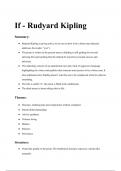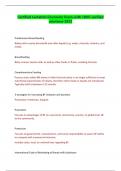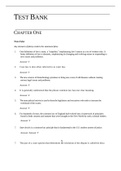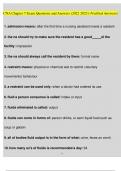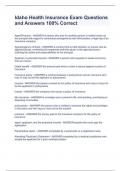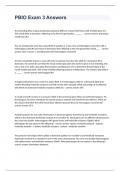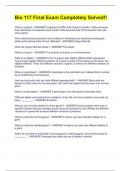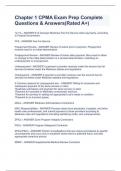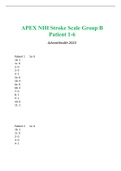Lecture notes
Pearson Edexcel GCSE English Literature Poetry Revision Notes
These are my complete poetry notes for Pearson Edexcel English Literature that got me a 9 in the subject. I have covered each poem in detail including summaries, themes, meaning of the poem, imagery, language, structure, and effect on the reader. The poems covered are If - Rudyard Kipling, Pray...
[Show more]
